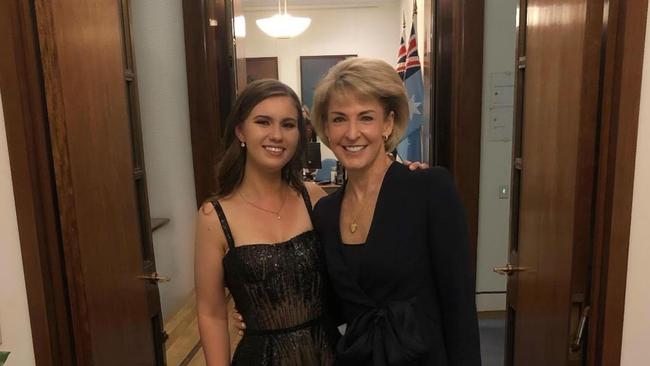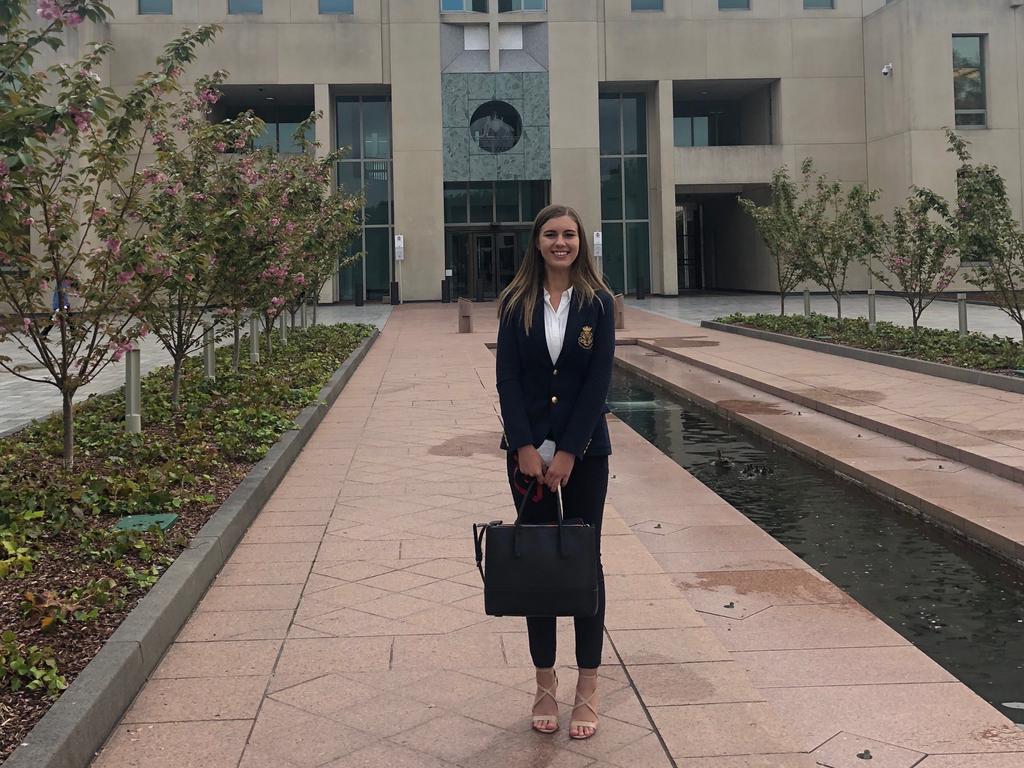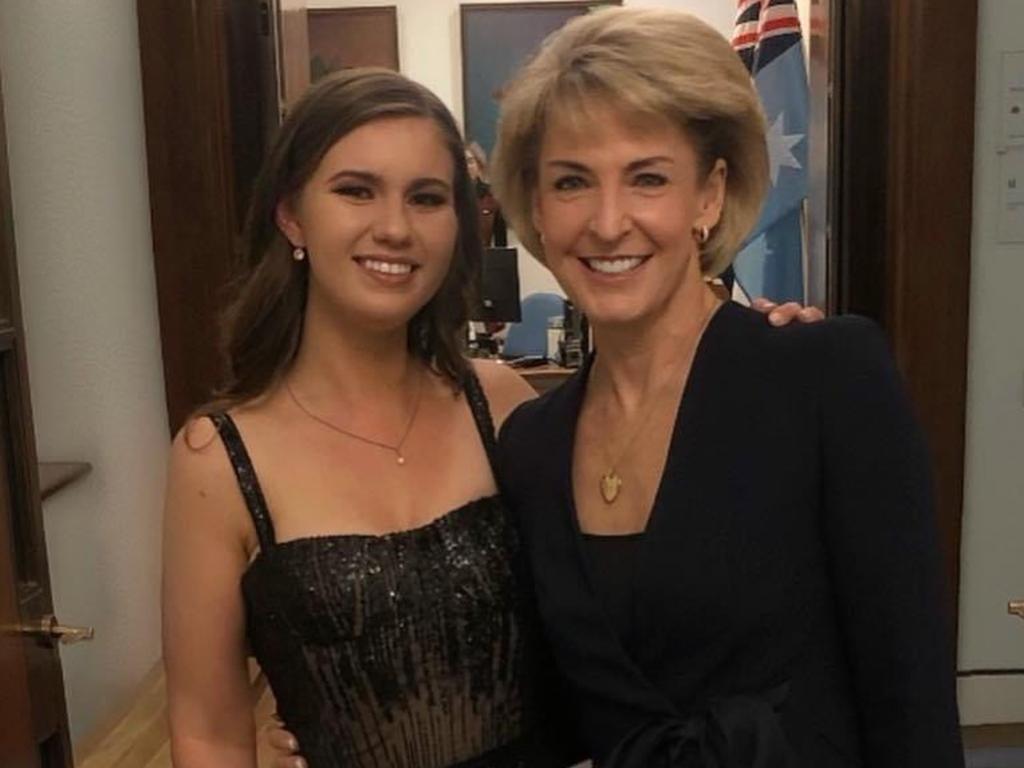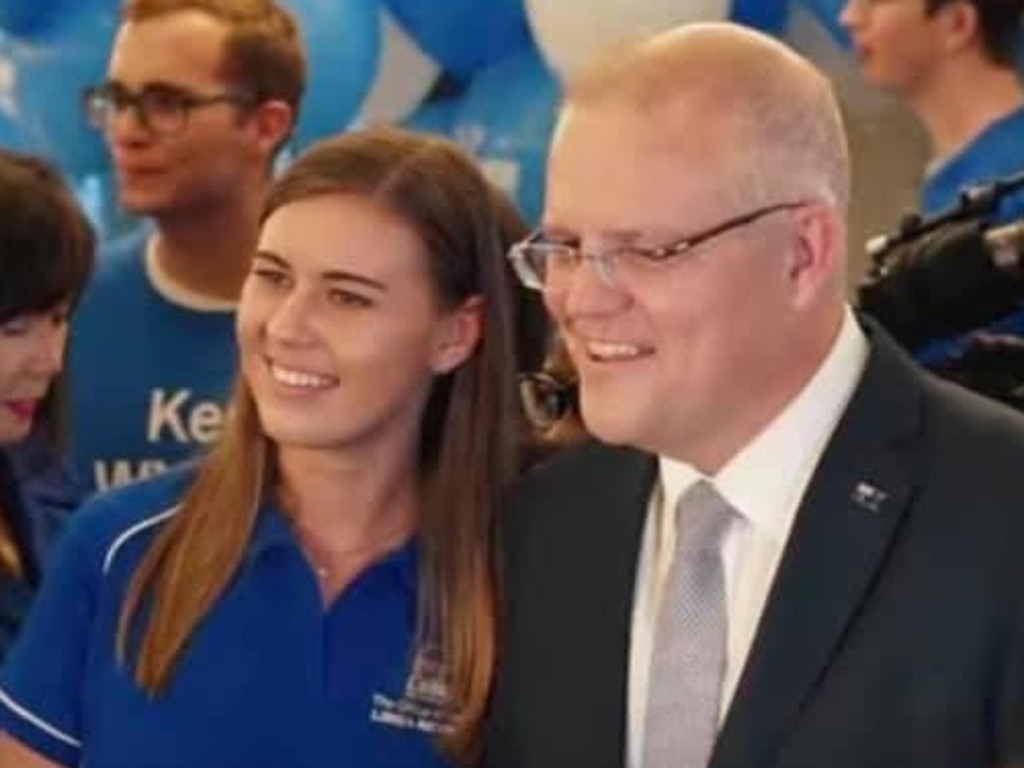Brittany Higgins: Life’s dream torn apart under glare of publicity
Political staffers like Brittany Higgins and the colleague accused of raping her work hard, play hard and adhere to one golden rule.

It’s not just newly-minted federal MPs and senators who arrive in Canberra bright-eyed and excited. The often young and uniformly ambitious advisers populating the parliamentary and ministerial offices in the big house on Capital Hill are just as caught up by the intoxicating atmosphere.
They work hard, play hard and adhere to one golden rule: staffers are never, ever to become the story for the journalists who hover in the press gallery and frequent the same restaurants and nightspots in nearby Kingston.
But the unwritten code was torn up this week — arguably, not before time — when Brittany Higgins came forward to allege she was raped in the early hours of March 23, 2019, in the office of then-defence industry minister Linda Reynolds after a boozy Friday night out with colleagues. The man accused of the attack, a more senior adviser, cleared his desk three days later.
As the political drama unfolded this week over who in the government knew what and when of the incident, Higgins, 26, was holed up in the spare room of her parents’ apartment on Queensland’s Gold Coast with partner David Sharaz, a former gallery journalist who worked briefly last year for the Department of Prime Minister and Cabinet.
Along with her family, he has provided the support that Higgins says was not forthcoming from the Morrison government or the Liberal Party. By her account, the priority of the Prime Minister’s Office and her ministerial bosses, now-Defence Minister Reynolds and Employment Minister Michaelia Cash, was to contain the political fallout of the alleged rape, not to look to her welfare.
Scott Morrison, Reynolds and Cash separately addressed parliament this week defending their responses, at differing times, to the rape allegations. On Tuesday, Morrison apologised to Higgins for being called into a meeting with Reynolds in the room in which she was allegedly attacked but insisted the government had tried to give the young woman “her agency … support to make decisions in her interest and to respect her privacy”.
In demand
For Higgins, the job she landed as a junior media adviser-receptionist in the office of then Gold Coast-based cabinet minister Steven Ciobo in November 2018 was a dream come true. “I had worked my entire life to get here,” she told The Project on Network 10. “I had wanted this future, I had wanted to be a part of it for my entire working life.”
From the Gold Coast, she had studied public relations and business at Griffith University, where she was also active in the Young Liberals. Her recruitment by Ciobo, however, proved to be problematic. He had risen to trade minister under Malcolm Turnbull but was moved into the lesser defence industry portfolio after Morrison’s ascension in the Liberal leadership drama of August 2018; when Ciobo quit the ministry the following March, two months out from the 2019 federal election at which he left parliament, Higgins was among the lucky three from his 20-strong ministerial staff to be offered another contract.
On that fateful Friday, March 22, 2019, three weeks after starting with Reynolds, she organised the get-to-know-you drinks with her new workmates and contacts at Defence. Like Higgins, her accused rapist had a background in state Young Liberals and had originally been brought to Canberra by a parliamentary big-wheel. He worked his way through several federal members’ offices before signing on with Reynolds.
As Higgins told The Project, she thought the young man was the “go-to person” in the office, a “rising star” in the government. This might be a measure of her naivete. Others who worked with him insist he was no such thing. One federal parliamentarian, who knew the young man well and had had regular dealings with him over several years, said he was “elevated well above his abilities”.
“He moved through the ranks too fast and was drinking his own kool aid,” the parliamentarian told The Weekend Australian. “Like a lot of these young staffers, he was mostly clever, mostly well-educated but for the first few years, he was little more than a dog’s body.
“They call them advisers, but they usually have no experience in life and little expertise.”
The parliamentarian is appalled by the culture in Parliament House revolving around heavy drinking and agrees it needs to change. “The staffers have a shit life: they work from early in the morning to late, and other than that they go out drinking or whatever they do together,’’ he says. “A lot of the offices will open a bottle around 4pm when parliament is still sitting, and then they go out from there.’’
Night of booze
Higgins says her accused attacker was chuffed when she asked him along to her drinks, though to reinforce her lack of romantic interest in him she took another date. As she tells it, he still plied her with alcohol: “I think he was grateful that I invited him; I was kind of happy that I had an opportunity to kind of demonstrate some value to the team,” she told The Project’s Lisa Wilkinson.
She became falling-down drunk as the night wore on, grazing a knee when she “face-planted” in front of the stayers, her cue to leave. The man offered to share a ride home; they lived in the same part of town, after all. But first he had to make a stop at the office.
He paid off the cab at Parliament House and rather than remain outside by herself, she followed him through the ministerial entrance. They negotiated a staffed security point and took the lift to Reynolds’ suite. “He was taking his time about something,” Higgins remembered.
She doesn’t recall whether he led her into the minister’s office or if she went there herself; somehow she ended up on the couch, at first alone. Higgins thinks she must have fallen asleep. By now, it was long after midnight. She awoke to the sensation that her leg was being crushed. Horrified, she realised she was being raped “and it had been going on for a while … he was sweaty, I couldn’t get him off of me,” she told Wilkinson. “At this point I started crying … I told him to stop.” Did he? “No … I felt like I was on a loop endlessly,” she said. “At least half a dozen (requests to stop were made). I was crying the whole way through it. He didn’t speak to me the entire time. I just remember … eventually he stopped and he got up and he looked at me and I kind of looked at him and I couldn’t get up, and he left.”
Change of tone
Parliamentary security officers had evidently tracked the pair on CCTV entering Reynolds’ office — a highly sensitive one, given the national security dimensions of the defence industry portfolio — and were concerned enough to check it when the man left alone. A female security officer found Higgins in a state of semi-undress. “My dress was up around my waist, the straps were kind of down,” she told Wilkinson.
Her first thought was: “Oh my God, I am at work.”
When she returned to work the next Monday not a word was said of it by anyone in the office, including her alleged attacker. Next morning, both were called in by the acting chief of staff, Fiona Brown, a senior adviser to Morrison who had been seconded to Reynolds’ staff. The man went in first and when he emerged about 45 minutes later he packed up his desk and left. It is not known whether he was sacked or resigned.
Higgins said she was told by Brown there had been a security breach and neither she nor the man had been authorised to be in the office after hours in such circumstances. “It was very procedural, it felt like a disciplinary meeting,” she said. But the atmosphere changed when Higgins described what had happened to her.
“I started from the start and went all the way through, and that was the first time I vocalised that I had been raped,” she told Wilkinson. “As I was telling it, it was the first time that I sort of had pieced together myself that what had happened was an assault, and the entire … tone changed, I think.
“Then … sort of a different hat came on, and she wasn’t disciplining me, it was more about managing the situation. It felt like it … immediately became sort of a political problem. It wasn’t a staffing problem, it wasn’t an HR problem, it wasn’t a human problem. It was like, OK, we have an issue.”



